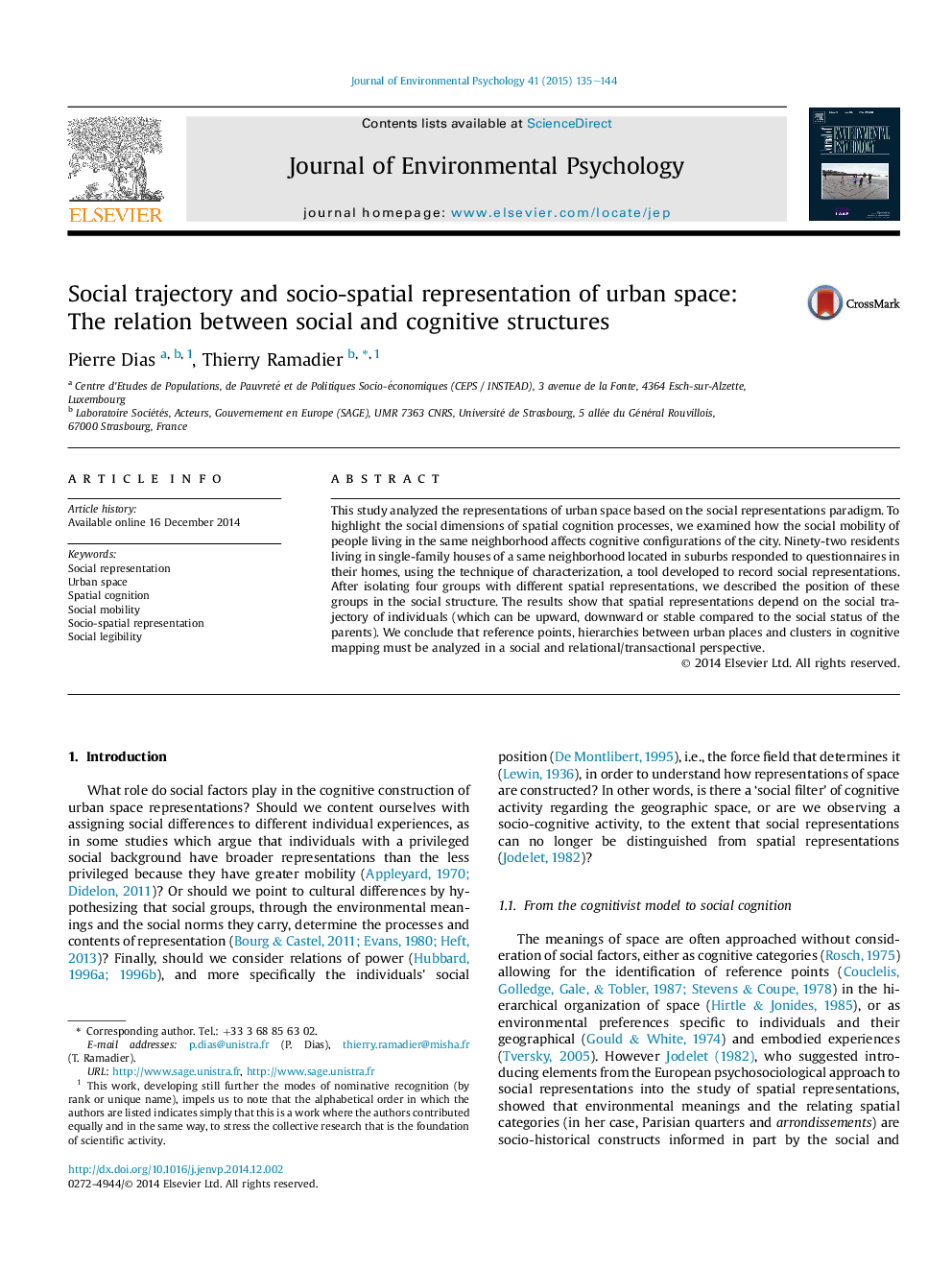| Article ID | Journal | Published Year | Pages | File Type |
|---|---|---|---|---|
| 7245936 | Journal of Environmental Psychology | 2015 | 10 Pages |
Abstract
This study analyzed the representations of urban space based on the social representations paradigm. To highlight the social dimensions of spatial cognition processes, we examined how the social mobility of people living in the same neighborhood affects cognitive configurations of the city. Ninety-two residents living in single-family houses of a same neighborhood located in suburbs responded to questionnaires in their homes, using the technique of characterization, a tool developed to record social representations. After isolating four groups with different spatial representations, we described the position of these groups in the social structure. The results show that spatial representations depend on the social trajectory of individuals (which can be upward, downward or stable compared to the social status of the parents). We conclude that reference points, hierarchies between urban places and clusters in cognitive mapping must be analyzed in a social and relational/transactional perspective.
Related Topics
Social Sciences and Humanities
Psychology
Applied Psychology
Authors
Pierre Dias, Thierry Ramadier,
